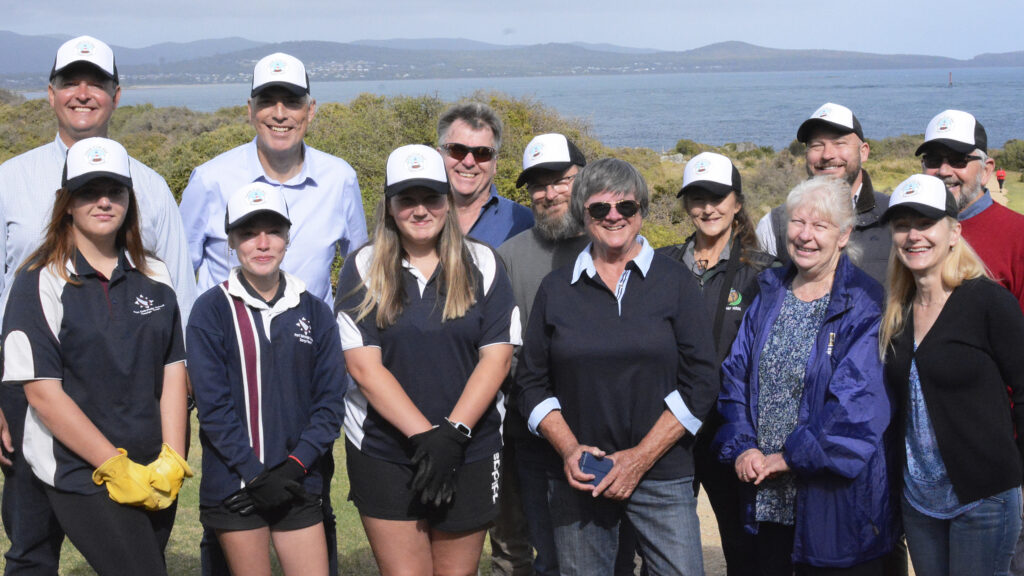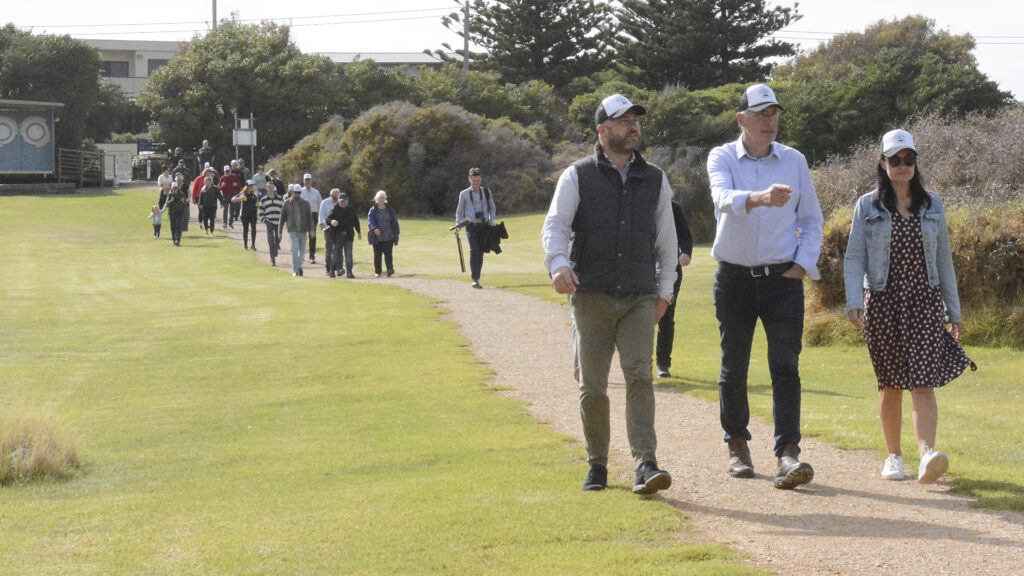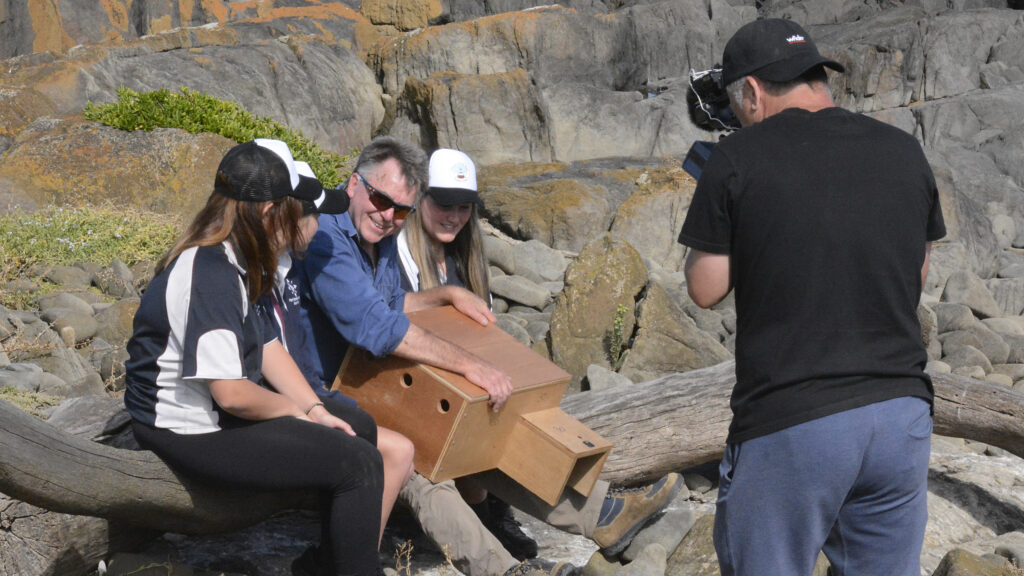Community wide approach to protecting penguins at Low Head
On Saturday 18 March, students from three George Town schools installed nest boxes to protect Little Penguins at Low Head.
The students were part of a community-wide project coordinated by the Friends of Low Head Penguin Colony, that was formed following a series of dog attacks that killed more than 100 penguins.
Steve Gordon, Chair of the Friends group, welcomed the involvement of the students, stating;
“The Group raised the necessary funds, we had local businesses help us purchase the materials and cut them to shape, then the students were invited to construct the nest boxes. There were more than 50 students in three schools, South George Town Primary, Port Dalrymple School & Star of the Sea Catholic College, that built the nest boxes, and all were so enthusiastic to be involved and contribute.”
“We’ve seen widespread community interest in the project, and the nest boxes are drawing in the next generation in the community to protect the penguins”
The Tasmania Parks and Wildlife Service and the local tour operator have supported the project.
Dr Eric Woehler OAM, Convenor of BirdLife Tasmania, has been involved in the Group’s efforts since the first public meeting and explained;
“BirdLife Tasmania has undertaken surveys and mapped the colony, and worked closely with the FOLHPC since 2018. They’re a remarkable and dedicated group from the local community that are committed to protecting the colony after the dog attacks. Surveys have shown that the penguins have adopted the nest boxes almost immediately, using them for breeding and moulting. It’s a remarkable success story for other coastal communities throughout Tasmania”.
In the ABC News story on the project, Dr Woehler stated;
“Colonies on the mainland are facing increasing stress from climate change, warmer seas [and] surface temperatures, and Tasmania’s slowly becoming the refuge for little penguins in Australia.”
He elaborated that climate change was leading to a shift in breeding schedules for penguins and with penguins coming ashore over a longer period, the risk of dog attacks increases.


